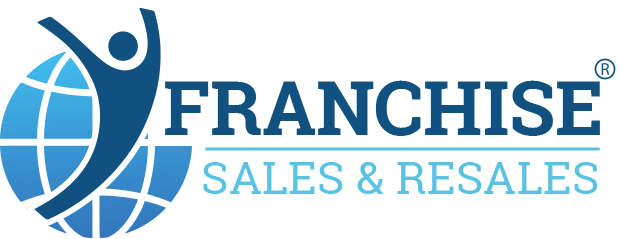By Sharon Keevins
•
September 6, 2024
Navigating the process of buying or selling a franchise can be complex, but with the right guidance, it becomes far more manageable. Whether you are an investor looking to buy into an established franchise or a business owner ready to sell your franchise, understanding each step is crucial. From valuation to negotiation and completion, this guide will take you through the key stages of the franchise transaction process, offering insights on how to maximise opportunities and avoid common pitfalls. The first step for both buyers and sellers is valuation. For sellers, this involves determining the market value of the franchise. Various factors influence this, including the business’s profitability, brand reputation, location, and future growth potential. An accurate valuation will often consider the franchise’s earnings before interest, taxes, depreciation, and amortisation (EBITDA), applying a multiple based on the industry and franchise size. Sellers should ensure they have a clear understanding of their financial records and seek the advice of a professional who specialises in franchise valuation. Buyers, on the other hand, should thoroughly review these figures. A franchise with a strong financial history and a consistent cash flow is far more attractive, but it’s essential to dig deeper, looking beyond the profit figures to understand the operational efficiency and market challenges. Once the valuation is clear, the search for a suitable franchise begins. For buyers, this means finding a franchise that aligns with your financial capacity, skills, and business goals. It’s essential to assess how involved you wish to be in day-to-day operations—some franchises are highly hands-on, while others may offer more managerial oversight roles. Buyers should investigate the franchise's brand reputation and the support offered by the franchisor. Strong franchises often provide extensive training, marketing support, and operational assistance, which can significantly reduce the risks of business failure. For sellers, finding the right buyer is equally critical. The ideal buyer is someone who not only has the financial capability to purchase the franchise but also understands the franchise’s operations and culture. Many franchisors will need to approve the new franchisee, so ensuring that the buyer fits with the brand is important. Sellers can market their franchise through various channels, including franchise brokers, websites dedicated to franchise resales, or through the franchisor’s network. The next stage is negotiation. For buyers, this phase is crucial to ensuring you get the best deal, not only on the purchase price but also on the terms of the franchise agreement. Buyers should seek to negotiate elements like training and support packages, territory rights, and renewal terms. If the franchise is part of a chain, there may be fees associated with joining the franchise network, so it’s important to understand these upfront. Additionally, some franchises require significant capital investment beyond the purchase price, such as for refurbishments or equipment upgrades. Buyers should ensure that all such costs are accounted for during negotiations. For sellers, negotiation can be a balancing act. While securing the highest price is often the goal, ensuring the buyer is capable and approved by the franchisor is equally important. Franchisors often have a vested interest in ensuring continuity of service and reputation, so both parties may need to work closely with the franchisor to finalise the sale. Sellers should be prepared to be transparent about the business’s financial health and any challenges it may have faced. This honesty can help prevent disputes later in the process. Once both parties have agreed on terms, it’s time to move to due diligence. For buyers, this is the phase where you should thoroughly investigate the business. It’s crucial to review all financial records, including tax returns, profit-and-loss statements, and any debts or liabilities that the business may have. Buyers should also assess the franchise’s legal agreements and understand the terms set by the franchisor, including any ongoing fees and obligations. Hiring legal and financial professionals with experience in franchising can be invaluable during this phase, as they can help spot potential red flags and ensure everything is in order. For sellers, due diligence involves preparing all necessary documentation for the buyer to review. This includes financial records, employee contracts, and any outstanding legal matters. Being organised and transparent can help expedite this process and build trust with the buyer. It’s also important to ensure that the franchisor is involved in this stage, as they may need to approve certain elements of the sale, such as the buyer’s qualifications or the assignment of the franchise agreement. Finally, both parties move to completion. This involves signing the necessary contracts, transferring ownership, and ensuring that all financial transactions are completed. For buyers, this might also include finalising financing arrangements, which could involve bank loans or other forms of credit. Sellers should ensure that all outstanding debts and liabilities are settled before the transfer of ownership. Once the sale is finalised, the franchisor will typically provide the new franchisee with the training and support they need to get up and running. Throughout this process, both buyers and sellers should be aware of common pitfalls. For buyers, one of the biggest mistakes is failing to conduct thorough due diligence. Relying solely on financial figures without investigating the operational health of the franchise can lead to costly mistakes. Similarly, not understanding the terms of the franchise agreement can result in unexpected fees or obligations. Sellers, on the other hand, should be cautious of overvaluing their franchise, as this can lead to a prolonged sales process or potential buyers losing interest. In conclusion, navigating the franchise buying or selling process requires careful planning, thorough research, and clear communication between all parties. By focusing on key steps like valuation, negotiation, due diligence, and completion, both buyers and sellers can ensure a smoother, more successful transaction.









